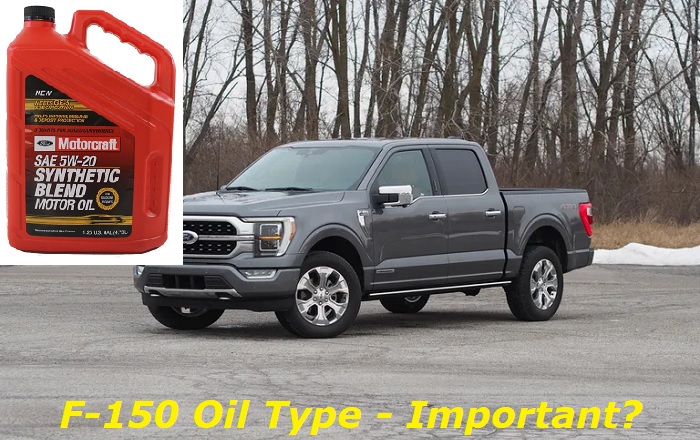Your EcoBoost engine in the F150 is really demanding in terms of oil quality. The turbocharged engines require proper oil viscosity and chemical composition of the lubricant to work properly and be lubricated well.
You should use the 5w30 oil that corresponds to Ford spec (WSS-M2C961-A1 or API SP / ILSAC GF-6A). Any change in viscosity may be dangerous for the engine. Also, it's recommended to use the full synthetic blend of oil to avoid contaminations in the engine. Or use whatever is written in your driver's manual!
Key features and my opinion about the 3.5L engine
- Production years:2010-now
- Average lifespan of 3.5L EcoBoost:190,000-220,000 miles
- Fuel supply type:direct injection
- Power range:310-660 hp
- Fuel efficiency:average
- Engine block material:aluminum
- Engine reliability score:medium
- The most common problems:intercooler problems, timing chain stretching, carbon buildup on intake valves, coolant and oil leaks.
Key features and my opinion about the 2.7L engine
- Production years:2015-now
- Average lifespan of 2.7L V6 EcoBoost:190,000-240,000 miles
- Fuel supply type:direct injection (later combined direct + port injection)
- Power range:315-330 hp
- Fuel efficiency:average
- Engine block material:cast-iron
- Engine reliability score:medium
- The most common problems:valvetrain problems, issues with electronics, oil consumption, power loss.

Why is the 5w30 oil type important?
There are several reasons why you should use exactly this type of oil:
- Ford tested this oil in its engine and it appeared to be good for longevity and overall good work;
- EPA approved this oil for EcoBoost engines which means it allows the engine to emit less harmful gasses;
- this type of viscosity is good for both winter and summer weather types;
- this viscosity is good for lubricating all the engine parts including the turbocharger;
- thicker oil may easily kill the turbo and also the lifters in your engine;
- thinner oil will not lubricate the major parts properly and may be washed easily from the cylinder walls.
Viscosity is one of the key parameters to remember when choosing the oil. Wrong viscosity can be extremely harmful to your engine in the long run and may lead to premature death.
Should I use only Ford Motorcraft oil in the F-150 EcoBoost engine?
Ford would love you to use Motorcraft oils. But it's not the obligation. Of course, you can choose any other oil brand, just make sure it corresponds with the specs that you will find in the driver's manual.
Almost all oil manufacturers have Ford specs included in their lists. You can learn this just by reading the information on the sticker directly on the oil package or in the description on the manufacturer's website.
I prefer using oil made by well-known brands like Mobil, Castrol, Shell, etc. Ford Motorcraft oils are not bad at all - they are just pretty expensive.
Why synthetic is your only choice?
Although you can see in forums people reporting the successful use of semi-synthetic oil in EcoBoost engines, I strongly advise against this. These types of oil are cheaper but they are less stable and will require being changed more often. So, you will economize zero money but will add risks for your engine.
Synthetic oil blends are more stable and they actually lubricate all important parts of your engine better. They form less buildup on inner parts and let your expensive turbo engine live a longer life.
Don't forget that with every oil change, you should also replace the oil filter. If this is done once every 5000 or 7000 miles, you will let your engine live longer and will potentially spend less for repairs in the future.
About the authors
The CarAraC research team is composed of seasoned auto mechanics and automotive industry professionals, including individuals with advanced degrees and certifications in their field. Our team members boast prestigious credentials, reflecting their extensive knowledge and skills. These qualifications include: IMI: Institute of the Motor Industry, ASE-Certified Master Automobile Technicians; Coventry University, Graduate of MA in Automotive Journalism; Politecnico di Torino, Italy, MS Automotive Engineering; Ss. Cyril and Methodius University in Skopje, Mechanical University in Skopje; TOC Automotive College; DHA Suffa University, Department of Mechanical Engineering






Add comment